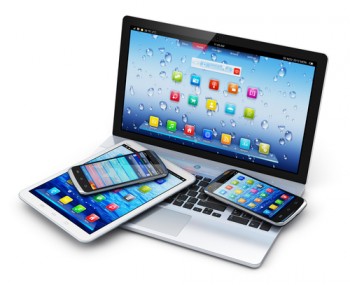With new rules, legally fixing consumer electronics just got easier

Shutterstock.com.
Late last week, the Librarian of Congress and the U.S. Copyright Office filed new rules that would give consumers unprecedented legal authority to fix their own consumer electronics.
“We’re very happy, ecstatic actually,” Gay Gordon-Byrne, executive director of the Repair Association, told the ABA Journal. “It’s an expanded opportunity to ask for help and hire help.”
Going into effect on Oct. 28, the rules provide exemptions to the Digital Millennium Copyright Act. Consumers or third-party repair shops would now be allowed to break the digital rights management technologies that are meant to stop people from tinkering with their devices.
This is an expansion of a previous exemption from three years ago that applied to motorized land vehicles, including farm equipment. Under the new rule, home appliances, computers, toys and internet of things devices would be exempt, as well.
For years, manufacturers have been fighting to keep software and hardware protected under copyright law, making it hard—if not illegal—for consumers or third parties to fix devices.
This has fueled a quick turnover of consumer electronics, causing, among other challenges, environmental harms. The Environmental Protection Agency said that 3.09 million tons of electronics waste was created in the United States in 2015. More than 60 percent was not recycled. The United Nations estimates there will be more than 55 million tons of e-waste worldwide this year.
Even with the change, companies can still put “kill switches” in their machines allowing the company to brick the device if repair work is done by a nonauthorized party, as Apple does with new MacBook Pros, according to Vice. Taking the opposite approach, Motorola announced it is partnering with iFixit—a do-it-yourself repair company—to sell repair kits directly to customers.
Representatives from the Entertainment Software Association, an industry group opposing some of the rule changes, did not return requests for comment.
The new rules from the Librarian of Congress, which totaled 85 pages, also will allow users increased latitude to unlock—where a user circumvents software allowing the device to connect to a different mobile providers—and jailbreak—giving access to the devices operating system—voice assistant devices, such as Google Home. The latter change would allow for consumers to install, run or remove software, as well as enable or disable hardware features of the relevant device, according to the recommendation.
Notably left out of the rule changes are video game systems, such as Xbox and PlayStation. Noting the legitimate concerns around piracy in video games, Gordon-Byrne says: “If that’s the only thing in the world people can’t fix, I think that’s an OK deal.”



